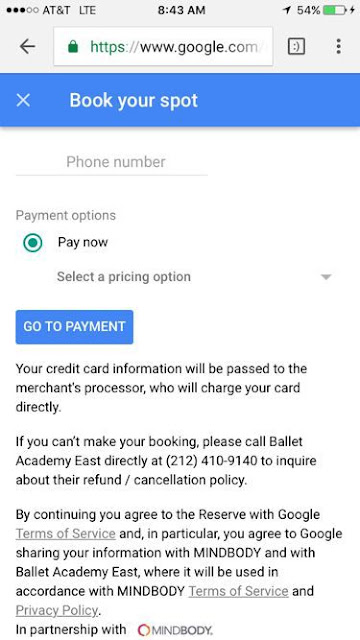Google just released its latest service to the world: a website that could help you get fit all while filling empty fitness studios around the world.
Reserve with Google is a new feature that lets you see and book fitness classes in the U.S. It was previously only available in New York, San Francisco and Los Angeles.
The site pulls together Google Maps and Google Search and puts them into a new Reserve with Google website (on desktop and mobile).
Think Google Flights (google.com/flights) except this is for transforming your body rather than transporting it.
You can search for fitness studios based on location and style. Google will also recommend ones to you. Here's how it works on mobile:
1. Go to google.com/maps/reserve. Choose your date and location. You can also search for types of classes. Select a time for the class.
2. Fill in your information: name, email, phone number. Some of it will be preloaded if you're signed in on Google Chrome.
3. Read the terms and conditions :). Choose whether you're doing one class or want to buy a package and then press go to payment.
4. If you have a card preloaded on your Google Chrome, you can press one more button to pay.
It takes three taps to book a class (if you have your information preloaded).
"We make recommendations based on courses you've taken, and will be exploring more ways to bring timely and useful recommendations to fitness buffs," a Google spokesperson told Cosmopolitan.com. "For example, you will soon be able to get notifications of new classes that might be interesting to you."
Google doesn't work this magic alone. The tech giant partnered with top scheduling providers, including MINDBODY, MyTime, Genbook, Full Slate, Front Desk and Appointy, according to the release.
The whole thing sounds like ClassPass, right? Well, this time you're not left with an unsustainable business model, hiked up prices and mismanagement.
As someone who went from paying $99 for unlimited classes to $125 for 10 on ClassPass, I'm going to go figure out how to cancel.





Comments
Post a Comment